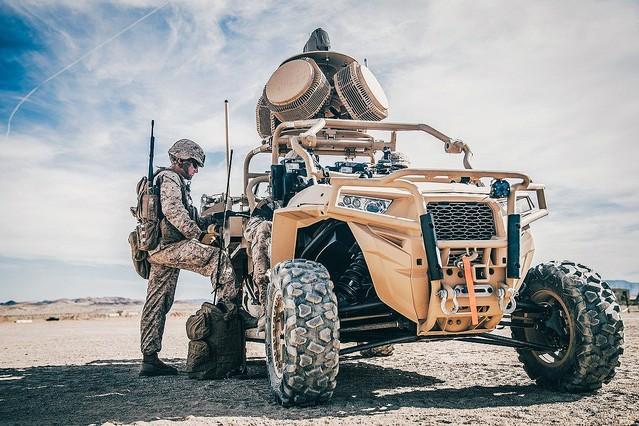[Part 4] How did President Putin explain to the public the reason for the "invasion of Ukraine": 1 hour speech full translation
The translator himself is not sure when it will end, which is the fourth long speech by President Putin.
I'm having trouble connecting to the official English version of the Kremlin, but Japan has contacted me if I can't connect. I was relieved that I wasn't noticed (maybe the impact of Anonymous's cyberattack? No way it affected me ... bitter smile).
Before I knew that, I was scared and erased cookies and other things on my computer. Thanks to that, I've retyped everything (only a bitter smile).
I think those who are anti-war in Russia are really brave.
Personally, this time, the content is surprising and thought-provoking in a completely different sense.
===========
Continued from <3>
The United States and NATO have begun to indiscriminately develop Ukrainian territory as a potential stage for military operations. The regular joint exercises are clearly anti-Russian. Last year alone, more than 23,000 soldiers and more than 1,000 troops were involved.
In 2022, a law has already been passed that allows foreign troops to come to Ukraine to participate in multinational exercises. Of course, these are mainly NATO troops. At least 10 joint exercises are planned for this year.
Obviously, these things are designed to provide a cover for NATO military groups to rapidly strengthen in Ukrainian territory.
In particular, I will only quote a few, such as Borispoli (near Kyiv), Ivanofrankifsk (southwest), Chuhuiv (eastern, famous as the Soviet air force base), Odessa (western coast of the Black Sea), but with the help of the United States. A modernized network of airfields can move troops in a very short amount of time.
Ukrainian airspace is open to US strategic, reconnaissance and drone flights that monitor Russian territory.
It should be added that the US Maritime Operations Center in Ochakiv is enabling Russia's Black Sea Fleet and all infrastructure on the Black Sea coast to support NATO warship activities, including the use of precision weapons.
At one point, the United States intended to build a similar facility in Crimea, but the Crimean and Sevastopol people failed the plan. We remember that all the time.
Today, I would like to repeat that such a center is already deployed in Ochakiv. In the 18th century, Alexander Suvorov soldiers fought for the city. Thanks to their courage, the city was incorporated into Russia.
Also in the 18th century, the land on the Black Sea coast that was incorporated into Russia during the war with the Ottoman Empire was named Novorossiya (New Russia).
Today, these epoch-making events in history, as well as the names of the nations of the Russian Empire and the great men of the military, are being driven into oblivion. Without their efforts, modern Ukraine would not have had access to big cities or even the Black Sea.
Recently, the monument to Alexander Suvorov was demolished in Poltava. What do you mean. Do you abandon your past? Is it the so-called colonial heritage of the Russian Empire? In that case, stay consistent.
Second, in particular, Article 17 of the Ukrainian Constitution stipulates that the deployment of foreign military bases on territory is illegal. However, it turns out that this is just a rule that can be easily avoided.
Ukraine has a NATO training operation (mission), which is effectively a base for foreign troops. We called the base an operation and just ended it.
![[Part 4] How did President Putin explain to the public the reason for the 【その4】プーチン大統領は国民にいかに「ウクライナ侵攻」の理由を説明したのか:1時間スピーチ全文訳](https://website-google-hk.oss-cn-hongkong.aliyuncs.com/drawing/article_results_7/2022/3/3/c3af2029a31a06dbb3e116892dd7eff4_1.jpeg)
Kyiv has long evoked NATO accession as a strategic path. Indeed, each country has the right to choose its own security system and form a military alliance.
Without "but" it wouldn't be a problem. International documents clearly define the principles of equal and inseparable security. This includes an obligation not to damage the security of another country and strengthen its own security.
This principle is stipulated in the OSCE (Organization for Security and Co-operation in Europe) Charter adopted in Istanbul in 1999 and the OSCE Astana Declaration in 2010.
In other words, choosing a security path should not be a threat to other countries, but Ukraine's accession to NATO is a direct threat to Russia's security.
Recall that at the NATO Summit in Bucharest, the capital of Romania, in April 2008, the United States adopted the decision to make Ukraine and then Georgia a member of NATO.
Many European allies in the United States were already fully aware of the risks associated with this outlook, but they had to succumb to the will of the Partner Principles. Americans only used them to pursue clear anti-Russian policies.
A certain number of NATO member states are still very skeptical about Ukraine's accession to NATO. I'm receiving signals from several European capitals that this doesn't happen overnight so don't worry.
In fact, our American partner says the same thing. We will answer, ok, if it doesn't happen tomorrow, it will happen the day after tomorrow. Is there any difference in this historically? There is nothing at all.
In addition, he acknowledges that the active hostilities in eastern Ukraine are a statement of American leaders' position that if the country meets NATO standards and overcomes corruption, it will not rule out the possibility of joining NATO. I am.
In the meantime, they try to convince us again and again that NATO is a peaceful and purely defensive alliance that poses no threat to Russia. Once again, they want us to believe those words.
But we are well aware of the real value of these words. In 1990, when the unification of Germany was discussed, the United States extended to Soviet leadership, NATO's jurisdiction and military presence did not expand by an inch to the east, and Germany's unification was east of NATO's military organization. I promised that it would not lead to expansion into. This is a quote.
They gave a lot of verbal guarantees, but they all turned out to be empty phrases. Later, they found that the accession of Central and Eastern European countries to NATO improved relations with Moscow, eased the fears rooted in the bitter historical heritage of these countries, and even created a belt for Russia's friendly nations. When it came to that, I started to make a promise.
However, what happened was the exact opposite. Governments of some Eastern European countries, struck by Russian phobia, bring prejudice and stereotypes about the Russian threat to the alliance, strengthening the potential for collective defense and deploying it primarily to Russia. Insisted that.
To make matters worse, it happened in the 1990s and early 2000s. Thanks to our openness and goodwill, relations between Russia and the West have reached a high level.
Russia has fulfilled all its obligations, including withdrawal from Germany and Central and Eastern Europe, and has made a significant contribution to overcoming the Cold War heritage. We have consistently provided a variety of options for cooperation, including the NATO-Russian Board and the OSCE framework.
Moreover, let me say something I have never said publicly. I will say it for the first time now. Then, in 2000, when the then incumbent President Bill Clinton of the United States visited Moscow, I asked him what the United States thinks about Russia's accession to NATO.
I won't reveal all the details of this conversation, but the response to my question is, so to speak, extremely modest, and the true attitude of Americans towards this possibility is, in fact, the actions they have taken towards our country since then. It is actually clear in.
We will refer to the explicit support for terrorists in Northern Caucasian, the neglect of our security demands and concerns, the continuous expansion of NATO, and the withdrawal from the Anti-Ballistic Missile Restriction Treaty (ABM Treaty). These raise questions. why? What is the meaning and what is the purpose? understood. You don't want to see us as friends or allies. But why are we trying to make us an enemy?
There can only be one answer. It's not our political system or anything else. It simply doesn't need an independent power like Russia around it. That is the answer to all the questions. This is the source of America's traditional anti-Russian policy and, therefore, its attitude towards all our security proposals.








